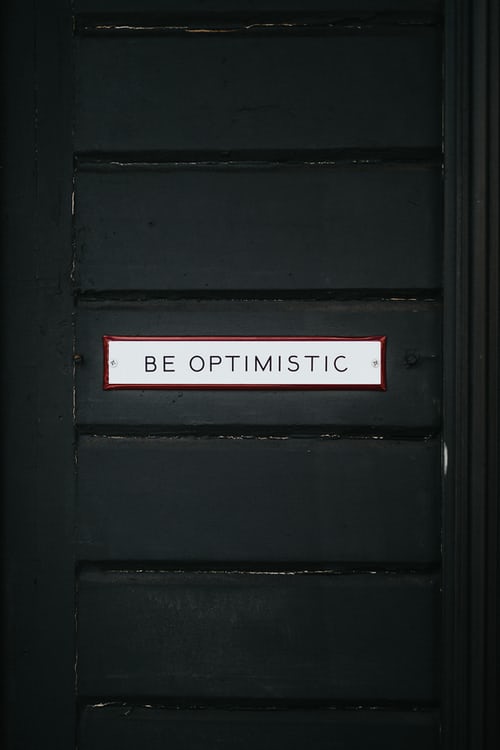The world has been focusing on positivity a long time, and there’s abundant research proving its benefits. But is it possible there’s a dark side to all that positivity?
Evidently the answer is “yes,” and it’s been given a name—toxic positivity.

Definition of Toxic Positivity—
While there are different definitions (I provided one from What’s Your Grief? in my last two blog posts), today I’ll give you the definition I found on thepsychologygroup.com website.
“The overgeneralization of a happy, optimistic state that results in the denial, minimization and invalidation of the authentic human emotional experience.”
As they point out, when anything is carried to the extreme, a problem emerges. In this case, the problem occurs when forcing positive “vibes” and positive thinking and focusing only on positive platitudes can cause you to silence, cover up or deny human emotion and experience. Yours, or someone else’s.
It becomes detrimental and unhealthy—physically, emotionally and spiritually.

What does toxic positivity look like?
How do you know if you’re forcing yourself to be positive or trying to push someone else this direction?
Here are some clues and red flags:
- When you try to hide or mask your true feelings.
- When you don’t allow someone else to express her true feelings.
- When you try to convince yourself that you just need to push ahead and get on with life; when you stuff or dismiss an emotion.
- When you tease, ridicule, or dismiss someone else’s emotion.
- You force-feed yourself positive statements to cover your emotions, which are likely the opposite of the positive statements.
- You force-feed others positive statements, to get them to “cheer up,” when the circumstances don’t warrant cheering.
- Trying too hard to change your perspective on an event that has hurt you.
- Trying to change someone else’s perspective on an event, especially when they have not asked for your perspective.
- Internally shaming yourself for feeling a certain way.
- Shaming others for their feelings, either by verbal digs, dismissive words, or negative body language. (Some would now label that behavior as “micro-aggression.”)
- Trying to brush off events and feelings that bother you or others with statements like “It is what it is,” or “It could be worse,” or “Look at the bright side.”
Certainly there are times when events cause jarring or overwhelming emotions that, if we latch onto them too hard and for too long, can cause physical, emotional and spiritual problems. But that’s not what I’m addressing here.
I’m focusing on those hasty comments made without really listening to yourself or others and trying to identify the emotion and figure out where it’s coming from. What the source is.

Why Toxic Positivity is Bad for Your Health—
Just was gratefulness and a positive life outlook can be beneficial to your health, swinging the pendulum too far that direction can have negative health consequences.
When you force a positive outlook on pain—the kind of pain that affects you physically, emotionally and spiritually—you’re telling yourself or others to keep silent about your, or their struggles. Sadly, this is often a problem among believers.
When you shut someone down from expressing their heart, you cast a shadow of shame on them. And that forces them to retreat into silence and secrecy, and possibly self-judgment and self-condemnation. They feel condemned by your response. And that often leads to a breakdown in physical, emotional and spiritual health.
They end up internalizing that pain along with the judgment. And that’s a recipe for potential health disaster.

Some dangers of hiding emotions—
Hiding and internalizing emotions or dismissing feelings and lead to a host of problems, like:
- Increased body stress and inflammation
- Increased difficulty avoiding stressful thoughts
- Increased psychological arousal
- Increased depression
- Increased anxiety and obsessive behaviors
- Fear
- Physical illness and disease, like cancers, PTSD, etc.
- Increased self-isolation and avoidance
- Shutting down
- Stress of keeping up a fake persona
- Loss of connection to others, and to ourselves
- Emotional and physical burnout
- Damage to the human spirit

What helps relieve emotional stress?
One study conducted by researchers found that when people were allowed and encouraged to express themselves through emotional and whole body responses—like facial expressions, crying, and verbal responses—they were able to relieve the internal stress they were experiencing.
The group not allowed to be free with their expressions had higher levels of internal physiological response. Meaning? What these people weren’t allowed to “get out” made them erupt on the inside.
That may be one of the reasons that people living with volatile individuals who are verbally, emotionally, or physically abusive have a reduced life span. They’re more prone to heart problems and other physically debilitating diseases. Scientists believe it may be the hormone cortisol that’s responsible for the health breakdown. A little of it’s good. Too much of it is damaging.
Much more recent studies indicate that people’s responses to others’ emotions make our own emotional response even more complicated.

Is shame ever good?
The question always comes up: Is shame ever a good thing?
Yes!
Shame can be necessary and productive when you’ve harmed someone emotionally, physically or spiritually. When you know you’ve sinned or done wrong and need to repent for your trespass. When your shame drives you to apologize, so a relationship can be restored.
Remember what the Apostle Paul tells us: it’s okay to get angry, but make sure you don’t sin in the expression of that anger.
Caveat—
Again, I want to say I am not talking about verbalizing EVERY feeling you experience, like lashing out in anger, having emotional outbursts, making sure everyone you encounter knows exactly how you feel about something. That’s just as unhealthy, usually more so for the recipient of your wrath.
I’m talking about feelings and emotions stemming from grief, trauma, honest disappointment, breaking of trust. Those types of events and triggers.
Wrap-up—
While I encourage everyone to be grateful, positive and hopeful, (more on hopeful in future blog posts), I encourage you to take a step back from that thinking and examine your feelings, and listen to others express theirs before making a judgment call or voicing a quick, positive opinion or offering positive-thinking advice—telling someone how they should think or respond.
That’s the loving thing to do for others, and for you.

Invitation—
- Think back to times when you expressed your feelings to someone and felt those feelings were quickly dismissed or steered another—happier—direction. How did that make you feel?
- When your feelings were dismissed, were you able to lovingly tell the offender how their response made them feel, or did you withdraw and then avoid talking about your pain?
- Are you still withdrawing, or avoiding that person or avoiding expressing your feelings to them? Did you lose trust in them?
- What helps you validate your feelings and express them honestly (not forcefully)?
Next week we’ll be finishing up this series with more examples of toxic statements, taking a mental inventory of whether we’ve been obnoxious offenders in response to someone’s expressions, and look at good, healthful ways to respond to hurtful people. And learn how to validate our own emotions.
Until then, be slow to anger, slow to speak and longsuffering. When you do respond, carefully choose your words.
Blessings,
Andrea
“Beloved, I pray that you may prosper in all things and be in health, jut as your soul prospers.”
Andrea Arthur Owan, M.S., A.T., R., is a health and fitness pro, speaker, award-winning inspirational writer, memoirist, and senior-ordained chaplain (IFOC). She helps people thrive physically, emotionally and spiritually and recover from grief, loss and trauma.
